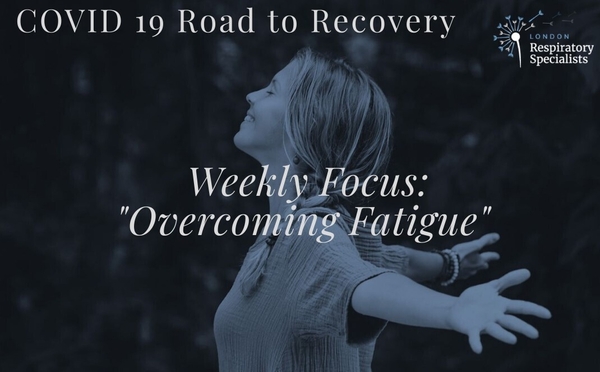Blog

COVID 19 Road to Recovery Series "Overcoming Fatigue"
Monday 19th October 2020
With so much media coverage and focus on the negative consequences of COVID 19, it can feel difficult to remain positive and optimistic during your recovering from the virus. However there are many things you can do to aid your recovery and self-manage your condition. Here at LRS we have decided to focus on some of the difficulties our clients commonly report and some of their top tips on how to overcome them. We have also done our own research to bring you some of the excellent resources currently available online which can help to support you during this difficult time.
Overcoming Fatigue
This week the LRS team have decided to focus on the symptom of fatigue as a result of COVID 19.
Are you currently feeling frustrated by the lack of energy you have during the day and the subsequent fatigue experienced after activity?
Despite extra rest do you continue to feel unrefreshed and limited in what you can achieve?
If this is the case you are certainly not alone, some of our clients report feeling completely physically and mentally exhausted during the infection, and in some cases, long after. We have all experienced tiredness from time to time, however fatigue can feel persistent despite sleep and additional rest throughout the day. Unfortunately, fatigue can impact on every part of our lives, our work, home life and relationships, and if left unaddressed, can become severely debilitating.
It can be difficult to predict how long fatigue will persist during and after COVID 19, some people can be very unwell at the start of the illness but recover relatively quickly, whilst other people may only have a mild viral illness but go on to have debilitating fatigue for a long time afterwards.
If you’re struggling with fatigue during your infection, we would suggest having a look at the resources available from the British Association for Managing CFS/ME.
Below are some useful points to take into consideration during the infection period. If however your fatigue has become more persistent or chronic in nature, check out the link to the resource at the bottom of the page for further information.
How to manage fatigue during the infection:
REST:
This is most important as it allows your body to focus on dealing with the infection. In this context, rest means resting the body and the mind, so doing very little – no TV, phones or using the internet. Use relaxation, breathing and meditation apps to help support quality rest. If something doesn’t work for you, try something else until you find something that does. Using quality rest periods regularly through your day will support your recovery – little and often is more helpful. Reduce any sensory input that makes you feel tense or is demanding – such as noise and bright lights. You can also use sensory input to help you rest and relax – like your favourite relaxing music, blanket, fragrance, or a hot water bottle.
ACTIVITY:
Keep activity levels low – both physical and cognitive (thinking) activities as they both use energy. If you are struggling with boredom, your mind is busy, or you are anxious, try and think of low-energy activities that are enjoyable. Do these for short periods of time with regular rest breaks.
NOURISH:
Keep eating and drinking, with as normal a routine as possible and maintain a balanced diet. Little and often may help if your appetite is low, rather than big meals. Increase your fluid intake, especially if you are not managing to eat as much. MOVE: If possible, get up and move around slowly and gently a few times each day to keep your body moving and to aid circulation (the movement of blood around your body). If you are too unwell for this, then you can try and move around in bed a little – stretching out, moving all of your joints, and tensing and relaxing your muscles.
ALLOW TIME:
Infections can affect people to different degrees, so give yourself the time you need to recover. The impact afterwards doesn’t always reflect the severity of the infection. Often there will be pressure to get back to your usual activities as soon as possible. Do not rush or push. HAVE
FUN:
Do some low energy fun activities every day. Whatever you like that is not effortful. Balance activity with regular rests.
STOP STUDIES/WORK:
Unless you feel fully well, you should stop studies or work to allow your body to focus on fighting the infection and recovering. Don’t forget unpaid work such as caring responsibilities is still work. In these situations, you may need outside support to take on your caring roles.
Found this useful? Check out further supporting information from the BACME:
Otherwise our team of therapists would be happy to provide you with more support and information on COVID 19 and recovery. Get in touch @ admin@londonrespiratory.co.uk



